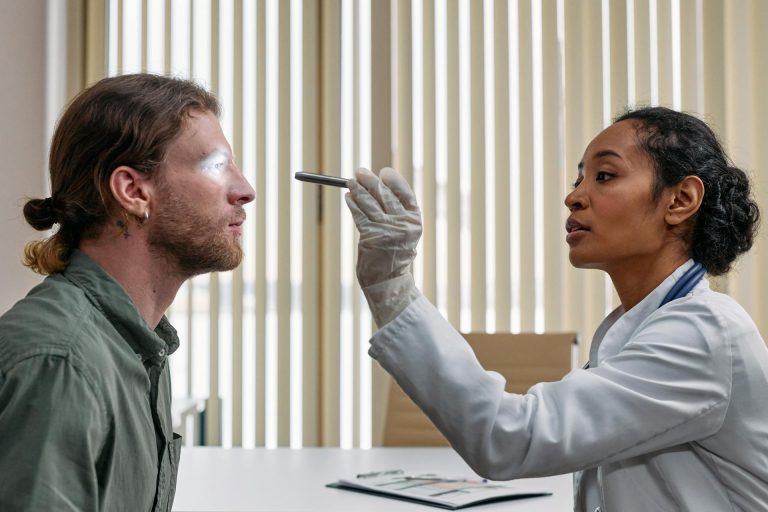Break Free: Alcohol Detox Options in Massachusetts
Alcohol addiction is a significant health issue, and it’s never too soon or too late to seek help. If you’re in Massachusetts or have a loved one in the region struggling with alcohol dependence, it’s crucial to have a comprehensive understanding of the detox options available. Navigating the path to sobriety can be complex, but with the right knowledge and support, it’s a manageable transition to a healthier, substance-free life. This overview will provide insights into various alcohol detox Massachusetts and the resources locally within Massachusetts that can assist in the recovery process.
Understanding the Need for Detox
Alcohol dependence is a serious medical condition that requires professional intervention. Detoxification, or detox, is the first step in recovery and involves the elimination of alcohol from the body. It is often the most challenging and critical phase, as withdrawal symptoms can be severe and, in some cases, life-threatening.
The common withdrawal symptoms associated with alcohol detox include anxiety, tremors, hallucinations, and seizures. Detox processes seek to manage these symptoms while providing a safe and supportive environment for individuals during this difficult time.
Inpatient Detox Programs
Inpatient or residential detox programs offer the most intensive level of care. Individuals live at the treatment facility and receive 24/7 care, which can include medical supervision, therapy, and medications to ease withdrawal symptoms.
Massachusetts is home to several reputable inpatient detox centers. These facilities provide a structured environment where individuals can focus on recovery without the distractions of daily life. Inpatient care is recommended for those with a severe addiction and those who may require medical support during withdrawal.
Outpatient Detox Services
For individuals with milder forms of alcohol addiction or those who cannot commit to an inpatient program, outpatient detox services may be an appropriate alternative. Outpatient detox allows individuals to receive care while living at home and typically includes regular check-ins with medical professionals.
Outpatient detox programs in Massachusetts provide flexibility, enabling patients to maintain responsibilities while seeking treatment. However, it’s important to note that outpatient detox is not suitable for everyone, and individuals must have a strong support system and low risk of medical complications.
Medical Detoxification
Medical detox is a process that uses medications to manage withdrawal symptoms and cravings. This approach, often integrated within inpatient and outpatient programs, focuses on not only removing alcohol from the body but also on supporting the individual’s psychological well-being.
Specialized medical detox programs in Massachusetts employ a multidisciplinary team of professionals, including doctors, nurses, and counselors, to create individualized detox plans. These plans may include medications such as benzodiazepines to address anxiety and seizures or naltrexone to curb alcohol cravings.
Holistic Detox Approaches
Some individuals may prefer or benefit from holistic detox methods that combine conventional treatments with alternative therapies. Holistic detox addresses the individual as a whole, considering their physical, mental, and emotional states.
Massachusetts offers a variety of holistic detox options, including nutrition-focused detox programs and those that incorporate practices like acupuncture or meditation to promote relaxation and healing. These programs can provide a more comprehensive approach to recovery, especially for individuals who are interested in non-pharmacological solutions.
Community-Based Withdrawal Support
Community-based support groups play a significant role in the detox and recovery process. Groups like Alcoholics Anonymous (AA) and SMART Recovery are available throughout Massachusetts and provide a supportive network of individuals who have or are currently going through the detox and recovery process.
These groups offer a sense of community, shared experiences, and a structured framework for coping with alcohol addiction. Many individuals find that ongoing participation in community-based support groups is an essential part of their long-term recovery.
Detox and Dual Diagnosis
A significant portion of individuals struggling with alcohol addiction also has a co-occurring mental health disorder. This is known as a dual diagnosis and requires integrated treatment that addresses both conditions simultaneously.
Massachusetts is at the forefront of dual diagnosis treatment, with many detox facilities offering integrated programs to manage alcohol addiction alongside conditions like depression or anxiety. These programs are essential for breaking the cycle of substance abuse and improving overall mental health.
The Road to Recovery
Detox is just the first step in alcohol addiction treatment. It is followed by rehabilitation, which can include counseling, therapy, support groups, and life skills training. The ultimate goal of recovery is sustained abstinence and the ability to live a fulfilling, independent life.
Massachusetts boasts a robust network of recovery resources, from residential rehabilitation centers to transitional living facilities. These resources help individuals build the skills and support systems needed to maintain sobriety.
Choosing the Right Detox Program
Selecting the right detox program is a crucial decision that requires consideration of various factors, including the severity of the addiction, individual preferences, and available support systems. When choosing a detox program in Massachusetts, it’s important to consider:
The level of care provided
The philosophy and methods of the program
The qualifications and experience of the staff
Access to follow-up services and support
The program’s success rates and patient reviews
Insurance and Payment Options
The cost of detox programs can vary significantly, but many facilities in Massachusetts accept insurance, making treatment more accessible. It’s essential to check with your insurance provider to understand your coverage and any out-of-pocket expenses associated with detox services.
For those without insurance, Massachusetts offers state-funded programs and sliding scale payment options based on income. No one should be deterred from seeking help due to financial constraints, and there are resources available to ensure access to care.
The Importance of Aftercare
Aftercare is a critical component of the recovery process and typically follows completion of a detox or rehabilitation program. Aftercare programs in Massachusetts include transitional housing, continued counseling, and support group participation.
Participating in aftercare services is associated with better treatment outcomes and a reduced risk of relapse. They provide ongoing support and help individuals transition back into their daily lives with the tools necessary to maintain sobriety.
Seek Help Today
If you or someone you know is struggling with alcohol addiction in Massachusetts, it’s time to take the first step towards recovery. Recognizing the need for help is a significant milestone, and there are numerous detox options and resources available to support a successful and lasting recovery.
It’s important to reach out to a medical professional or treatment center to discuss the best path forward. Remember, the decision to seek treatment is a courageous one, and it can lead to a life of renewed health and happiness. Don’t wait any longer—break free from the chains of alcohol addiction and take control of your future.






